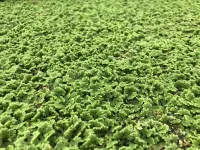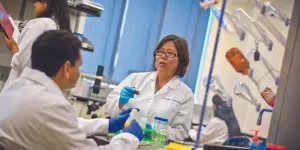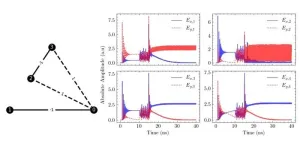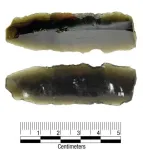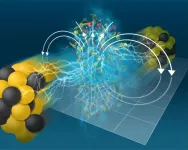(Press-News.org) Yale School of Medicine and its Center for Infection & Immunity (CII) are receiving a $575,000 grant from PolyBio Research Foundation to fund Long COVID research. The grant—issued via PolyBio’s LongCovid Research Consortium (LCRC)— will support a collaboration to define mechanisms by which the SARS-CoV-2 virus can persist for long periods of time in tissue and blood.
There is growing evidence that SARS-CoV-2 may not fully clear from Long COVID patients after initial infection. Instead, reservoirs of the virus can persist in patient tissue for months or even years, with recent research finding the SARS-CoV-2 virus in gut tissue more than 600 days after infection. Persistent viral RNA or proteins have also been identified in blood samples collected from Long COVID patients, but the exact nature of the viral RNA that gives rise to this prolonged infection remains unclear.
Hoping to find answers, Yale School of Medicine scientists will analyze Long COVID tissue samples to uncover mechanisms by which the virus or its proteins persist. The team will also use mouse models to test therapeutics including antivirals, antisense oligonucleotides, and innate immune stimuli such as stem-loop RNA for their potential to eliminate persistent virus, which could ultimately inform Long COVID clinical trials. The research team includes:
Akiko Iwasaki, PhD: Sterling Professor of Immunobiology and professor of dermatology; of molecular, cellular & developmental biology; and of epidemiology (microbial diseases); and Howard Hughes Medical Institute Investigator.
Richard A. Flavell, PhD, FRS: Sterling Professor of Immunobiology and Howard Hughes Medical Institute Investigator.
Anna Pyle, PhD: Sterling Professor of Molecular, Cellular & Developmental Biology and professor of chemistry
Craig Wilen, MD, PhD: associate professor of laboratory medicine and of iImmunobiology, and medical director of Yale School of Medicine’s Immune Monitoring Core Facility.
This new grant builds on an existing collaboration between PolyBio and Yale through CII, which Iwasaki heads. With support from PolyBio’s LCRC, Iwasaki and CII have been working to characterize the activity of human endogenous retroviruses in patients with Long COVID. “Our hope is that by studying viral RNA persistence in Long COVID, we can better understand the pathogenesis and treatment of other related debilitating chronic conditions,” says Iwasaki. Persistent RNA virus infection, including with enteroviruses, has been implicated in chronic conditions such as myalgic encephalomyelitis/chronic fatigue syndrome (ME/CFS), which also is a subject of ongoing research by Iwasaki as well as other scientists.
Pyle leads a research group that specializes in the structure and function of large RNA molecules, RNA remodeling enzymes, and cellular RNA sensors. “Dr. Pyle boasts decades of experience in the study of RNA molecules,” says Amy Proal, PhD, president of PolyBio Research Foundation. “We are thrilled that her laboratory has pivoted its expertise to SARS-CoV-2 and Long COVID.”
END
Yale School of Medicine receives a $575,000 grant from PolyBio Research Foundation to fund long COVID research
2024-02-23
ELSE PRESS RELEASES FROM THIS DATE:
Common plant could help reduce food insecurity, researchers find
2024-02-23
UNIVERSITY PARK, Pa. — An often-overlooked water plant that can double its biomass in two days, capture nitrogen from the air — making it a valuable green fertilizer — and be fed to poultry and livestock could serve as life-saving food for humans in the event of a catastrophe or disaster, a new study led by Penn State researchers suggests.
Native to the eastern U.S., the plant, azolla caroliniana Willd — commonly known as Carolina azolla — also could ease food insecurity in the near future, according to findings ...
Innovative chemotherapy approach shows promise against lung cancer
2024-02-23
Lung cancer is not the most common form of cancer, but it is by far the deadliest.
Despite treatments such as surgery, radiation therapy and chemotherapy, only about a quarter of all people with the disease will live more than five years after diagnosis, and lung cancer kills more than 1.8 million people worldwide each year, according to the World Health Organization.
To improve the odds for patients with lung cancer, researchers from The University of Texas at Arlington and UT Southwestern Medical Center have pioneered a novel approach to deliver cancer-killing drugs directly into cancer cells.
“Our method ...
Encoding computers of the future
2024-02-23
In our data-driven era, solving complex problems efficiently is crucial. However, traditional computers often struggle with this task when dealing with a large number of interacting variables, leading to inefficiencies such as the von Neumann bottleneck. A new type of collective state computing has emerged to address this issue by mapping these optimization problems onto something called the Ising problem in magnetism.
Here's how it works: Imagine representing a problem as a graph, where nodes are connected by edges. Each node has two states, either +1 ...
Artifact could be linked to Spanish explorer Coronado's expedition across Texas Panhandle
2024-02-23
DALLAS (SMU) – It’s a small piece of obsidian, just over 5 centimeters long, likely found on a hard-scrabble piece of ranchland in the Texas panhandle. But when SMU anthropologist Matthew Boulanger looks at it, he gets a mental image of Spanish explorer Francisco Vasquez de Coronado making his way across the plains more than 470 years ago in search of a fabled city of gold.
Boulanger believes that the flaked-stone tool with its sharp edge was likely dropped by a member of Coronado’s ...
Do’s and don'ts with direct oral anticoagulants
2024-02-23
Direct oral anticoagulants (DOACs) are a common treatment for patients with a wide variety of cardiovascular conditions. DOACs are the preferred treatment over vitamin K antagonists (VKAs) for many patients with atrial fibrillation or venous thromboembolism, since the latter would have a higher risk of intracranial bleeding and more complex dosing routine. However, new research suggests that DOACs should not be the first line of treatment for every patient who need to treat or prevent blood clots. A systematic overview from researchers at Brigham and Women’s Hospital, a founding member of Mass General Brigham, discusses the efficacy ...
Super strong magnetic fields leave imprint on nuclear matter
2024-02-23
UPTON, NY—A new analysis by the STAR collaboration at the Relativistic Heavy Ion Collider (RHIC), a particle collider at the U.S. Department of Energy’s (DOE) Brookhaven National Laboratory, provides the first direct evidence of the imprint left by what may be the universe’s most powerful magnetic fields on “deconfined” nuclear matter. The evidence comes from measuring the way differently charged particles separate when emerging from collisions of atomic nuclei at this DOE Office of Science user ...
TMEM208 variants cause a new developmental disorder
2024-02-23
A recent study conducted in the lab of Dr. Hugo J. Bellen, distinguished service professor at Baylor College of Medicine and principal investigator at the Jan and Dan Duncan Neurological Research Institute at Texas Children’s Hospital, has discovered a biological role of a specific transmembrane protein called TMEM208.
The study, published in the Proceedings of the National Academy of Sciences, showed that a majority of fruit flies lacking this gene do not survive, and the few that do survive have many developmental defects. Similarly, a child with variants ...
Researchers explore whether gut microbes cause some COVID-19 patients to have higher blood clot risk
2024-02-23
A gut microbial metabolite called 2-methylbutyrylcarnitine (2MBC) plays a role in exacerbating thrombosis -- the formation of blood clots – researchers report February 23rd in the journal Cell Metabolism. The results also revealed that 2MBC is accumulated in individuals with COVID-19, potentially explaining why these patients are at increased risk of thrombosis.
“Our study provides mechanistic insight by implicating 2MBC as a metabolite that links gut microbiota dysbiosis to elevated thrombotic ...
Childhood factors associated with unnatural death through midadulthood
2024-02-23
About The Study: In this urban population-based cohort study of 2,180 participants, no modifiable risk factors of mortality at the level of the individual (e.g., depression or anxiety and substance use) or the family (e.g., household education level) were identified. However, the degree of neighborhood poverty in early childhood was significantly associated with death by unnatural causes (death due to unintentional injury, suicide, and homicide) in early adulthood, suggesting that economic policies are needed to advance health equity in relation to premature mortality.
Authors: Holly C. Wilcox, Ph.D., of the Johns Hopkins Bloomberg ...
Severe COVID-19 in vaccinated adults with hematologic cancers in the Veterans Health Administration
2024-02-23
About The Study: In this case-control study including 6,122 patients with hematologic cancers and SARS-CoV-2 infection, odds of severe COVID-19 remained high through mid-2022 despite vaccination, especially in patients requiring treatment.
Authors: Paul A. Monach, M.D., Ph.D., of the VA Boston Cooperative Studies Program in Boston, is the corresponding author.
To access the embargoed study: Visit our For The Media website at this link https://media.jamanetwork.com/
(doi:10.1001/jamanetworkopen.2024.0288)
Editor’s Note: Please see the article for additional information, including other authors, author contributions ...
